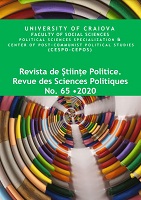Free Access to Justice in Civil matters in Post-Communist Europe
Free Access to Justice in Civil matters in Post-Communist Europe
Author(s): Mihaela Cătălina Scafeș (Opran)Subject(s): Human Rights and Humanitarian Law, Civil Society, Post-War period (1950 - 1989), Transformation Period (1990 - 2010), History of Communism
Published by: Editura Universitaria Craiova
Keywords: free access to justice; appeals; procedural restrictions; civil matters; deadlines;
Summary/Abstract: No person can exist in modern society without a set of personal rights and a series of obligations, either general or personal, imposed according to the category of which he belongs. Therefore, the rights of the person are circumscribed in the very essence of it and give it a legal meaning. Economic and social development leads to the emergence of new legal situations, which could not be taken into account by the legal norms at the time of their publication. Therefore, the courts are called upon to apply the general principles of law for their settlement and at the same time the need for justice increases. Therefore, of particular importance is the problem of access to a court, in the sense of making requests for obtaining decisions that can be enforced, so that the person's requests find their desired purpose. Free access to justice is part of the procedural safeguards that make up the right to a fair trial. Moreover, it is the very beginning of its manifestation, because without the possibility of promoting legal claims, we cannot discuss the process in the sense recognized by the European Convention of Human Rights. Free access to justice is analyzed in relation to other specific concepts, such as: democracy, rule of law, internal legal framework, freedom and impartiality of courts, reasonable term, procedural guarantees or limitations to them.
Journal: Revista de Științe Politice. Revue des Sciences Politiques
- Issue Year: 2020
- Issue No: 65
- Page Range: 117-125
- Page Count: 9
- Language: English

